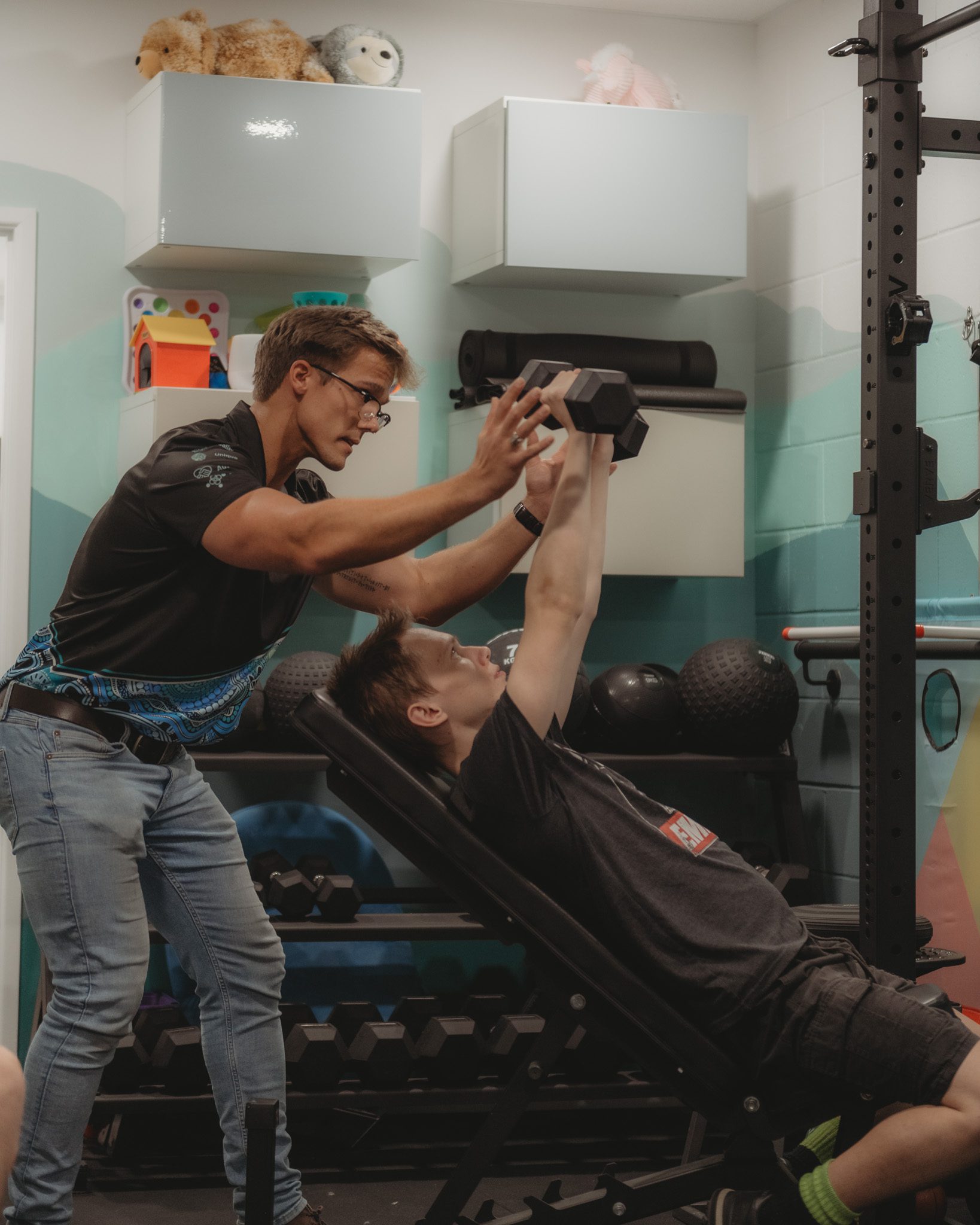Living in rural Queensland, although not far from the sunshine coast, finding therapists for your children with ASD and ADHD, can be a challenge.
The Quad Care team of Allied Health in Woodford, Queensland, has a strong multidisciplinary cohesive team of occupational therapist’s, speech therapists, exercise physiologist and allied health assistants. We work collaboratively together to improve outcomes for children and families negotiating some of the symptoms of ASD and ADHD both at home and in school.
One of the proactive strategies we have do to improve waitlist times and budget and quality outcomes is give our new clients the opportunity to start exercise therapies (either in the gym or our hydrotherapy pool) with one of our Accredited Exercise Physiologist’s (AEP’s or EP’s).
Accredited Exercise Physiologists complete a minimum 4-year bachelor degree provided by a National University Course Accredited Program. They are governed by a code of ethics and obliged as all allied health professionals are to adhere to continuing professional development standards. Meaning they keep learning long after they graduate. The peak professional body for Exercise Therapists is known as ESSA (Exercise and Sports Science Australia).
It has long been known that the application of the science of exercise can improve mental health and wellbeing, but did you know that a strong database of evidence shows improved outcomes for children with ASD and ADHD?
What if some of the outcomes you are seeking from other therapies can be targeted through exercise therapy programmes focused on the ASD and ADHD symptoms affecting your child, their schooling and your family’s life at home?
Parents living with children with ASD and ADHD know that some of the key symptoms of ASD they are looking for assistance in, include their children’s difficulty with social interactions and communication, behaviours, sensory processing difficulties and social and motor delays. Some of the key symptoms of ADHD might be; lack of focus, impulsivity, forgetfulness, restlessness and anxiety, fatigue and emotional dysregulation.
A growing body of literature indicates a potential role for physical exercise in the treatment of ADHD. Results indicate that improvements in executive functions, improvements to inattention and improvement of anxiety related symptoms can be attributed to exercise programmes. The increase in cerebral blood flow during exercise contributes to this through the stimulation of key neurotransmitters including, dopamine and norepinephrine. You can read more about this here ( Harnessing the Power of Exercise Physiology for ADHD and Autism –).
AEP’s can support children with ASD to achieve improvement in the areas of, motor, manipulative and locomotor skills, cognitive functioning, behaviour stereotypy, aggressive behaviours, socioemotional functioning, and physical condition and skill related fitness. (You can read more about the ESSA’s Submission to the NDIA regarding the interventions for children on the autism spectrum here).
Some studies also suggest that intervention of aerobic and exercise stretching by be helpful for cognitive function and behaviour in children with ADHD. You can read more about this study here ( Effects of physical exercise on children with attention deficit hyperactivity disorder – PMC).
In August 2023, a study was released of a meta-analysis of studies reviewed studies that addressed the effects of exercise on at least one outcome of mental health including ADHD symptoms in children. (Read the abstract here).
This study reviewed 181 articles on the topic and concluded that improvement of cognitive flexibility, inhibitory control and inattention in children and adolescents with ADHD was high suggest by exercise interventions. (See here).
Another study concluded that adolescents with ASD exposed to a 48-week physical exercise intervention program had important improvements in ASD symptoms. Including decreased social interaction problems, attention deficit, emotional reactivity and sleep disturbances.
To conclude, if you’re looking at improving outcomes for your child, and improving the dynamics at home, but OT waitlists are keeping you from moving forward. Please feel confident in the body of supporting evidence in favour of positive outcomes for children with ASD and ADHD working with Exercise Physiologists with quality, exercise therapy program and interventions.
If you think your child/ adolescent would benefit in multiple areas of their life from working with our exercise physiologists, please give us a call on 075391 1291
